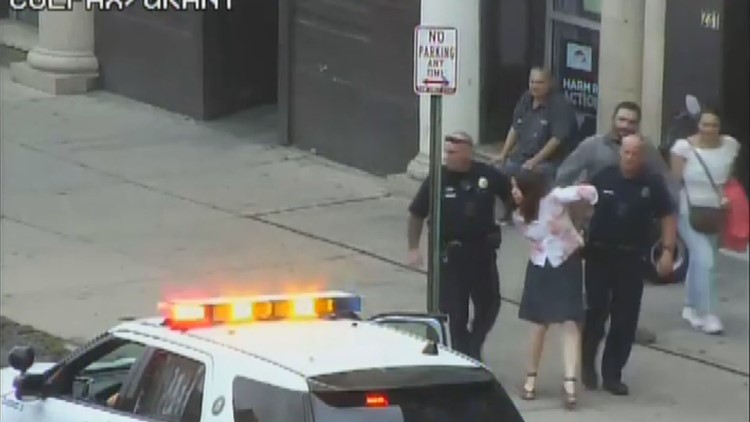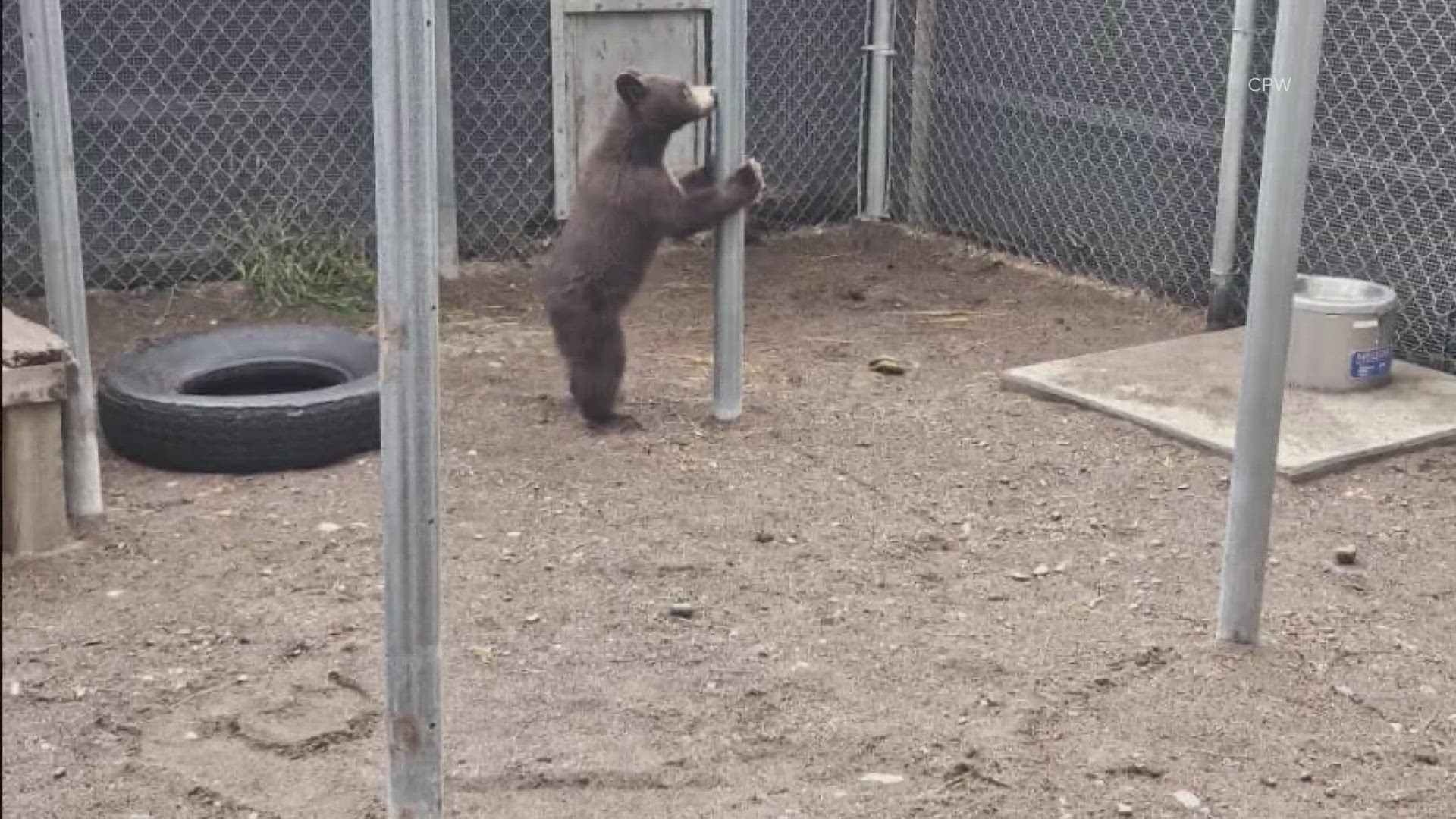DENVER — The Denver Police Department released body camera and surveillance video of officers handcuffing a journalist after she refused to stop photographing an incident involving a naked man on the sidewalk last month.
Susan Greene, the editor of the Colorado Independent, said she was taking photos of the officers during a police action on July 5, after seeing a number of police officers surrounding a nude man on the sidewalk near the intersection of East Colfax Avenue and North Grant Street.
The video includes recording from multiple officers’ body worn cameras and a surveillance camera mounted in the intersection. It shows police approaching a naked man, asking him to lie down on the ground and apparently placing him in handcuffs.
An ambulance arrives, and a little more than one minute later, the surveillance camera shows Greene entering the frame and walking around the officers to stand near the ambulance.
Within seconds, Officer James Brooks approached Greene.
Officer Adam Paulsen quickly followed and the audio recording from Paulsen’s body camera recorded the following exchange:
- "This is protected by HIPAA – you can’t record here," Officer Brooks said.
- "There's also a First Amendment,” Greene said. “Have you heard of it?"
- “That doesn’t supersede HIPAA,” both officers said. “Step away, or you’ll be arrested for interference.”
- Greene then lifts her phone to take a photo of one of the officers and is placed in handcuffs.
- Both officers are then heard saying, "Stand up and act like a lady."
- During this time, the man who was nude on the sidewalk was taken to Denver Health and later released. He was not arrested, police said in a statement. Police did not release his name, but said he a “man in crisis.”
- After Greene was handcuffed, she was escorted to the police vehicle and put in the backseat. She was released after approximately 10 minutes. No arrest record was made.
In a press conference on Wednesday, after reviewing the body camera video, Greene and the lawyers representing her said they were prepared to file a lawsuit against the police department, but have not yet done so.
"It's our job to not take no for an answer when ‘no’ is illegal," Greene said. “I don’t think we should stop taking photos when we are told unlawfully to do so.”
“The Denver Police Department respects the First Amendment rights of all individuals,” the department said in a statement.
On July 10, five days after this incident, the department said it issued a “training requirement” to review First Amendment-related policies. On August 16, the department also published a training bulletin related to First Amendment policies.
The bulletin reiterates the right of the public to record police activity, so long as the person is in a public place where they are legally allowed to be present, are not placing themselves or anyone else in danger, and do not “materially interfere” with police conduct.
Officers, under the DPD guidelines, shall not, “threaten, intimidate, or otherwise discourage from recording” such individuals, and neither will officers “detain or arrest the individual,” the bulletin states.
The Denver District Attorney’s Office reviewed the incident and chose not to press charges against the officers. The Denver police department conducted a preliminary review and opened a formal internal affairs investigation to determine whether the officers involved violated department policy.
Police would not offer further comment regarding the ongoing internal affairs investigation.



